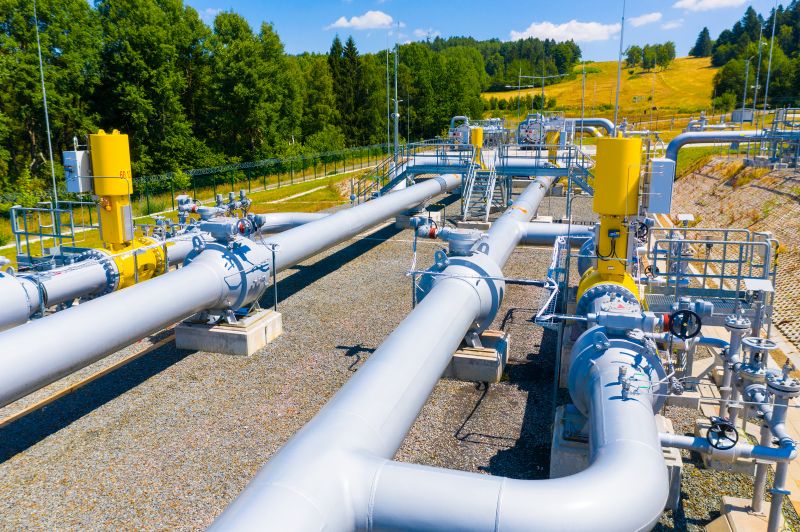Popular Solutions for Outdoor Gas Line Construction Projects
Find the most sought-after tools and accessories that simplify outdoor gas line setup while maintaining safety standards.
 Constructing outdoor gas lines requires careful selection of compatible components to ensure safety and functionality. From supply hoses to connectors, each element plays a vital role in delivering reliable gas flow for appliances such as grills, heaters, and fire pits. Proper installation not only enhances performance but also minimizes potential hazards associated with gas leaks or pressure issues. When planning an outdoor gas line setup, it is essential to understand the various product options available and their specific applications.
Constructing outdoor gas lines requires careful selection of compatible components to ensure safety and functionality. From supply hoses to connectors, each element plays a vital role in delivering reliable gas flow for appliances such as grills, heaters, and fire pits. Proper installation not only enhances performance but also minimizes potential hazards associated with gas leaks or pressure issues. When planning an outdoor gas line setup, it is essential to understand the various product options available and their specific applications.
Top Overall Option
Outdoor Gas Line Connector Kit
An outdoor gas line connector kit typically includes a combination of flexible hoses, fittings, and shut-off valves designed for outdoor use. These kits are versatile and often feature corrosion-resistant materials, making them suitable for various outdoor environments. They provide a comprehensive solution for connecting appliances to gas sources securely and efficiently, with easy installation options for DIY enthusiasts and professionals alike.
Types of Products For Outdoor Gas Line Constructions
Flexible Gas Hoses
Flexible hoses allow for easy routing and installation around obstacles, providing adaptability in outdoor setups.
Rigid Gas Piping
Rigid piping made from materials like steel or copper offers durability and is often used for permanent installations.
Gas Fittings and Connectors
Various fittings and connectors enable secure joining of pipes and hoses, facilitating customized configurations.
Shut-Off Valves
Shut-off valves provide a safety feature to quickly stop gas flow during maintenance or emergencies.
Gas Regulators
Regulators control the pressure of gas delivered to appliances, ensuring safe and consistent operation.
Leak Detection Devices
Leak detection devices help identify potential leaks early, enhancing safety during installation and use.
Outdoor Gas Connectors
Connectors designed specifically for outdoor environments are resistant to weather and corrosion.
Gas Manifolds
Manifolds distribute gas from a single source to multiple appliances efficiently.
Pressure Gauges
Gauges monitor gas pressure levels to ensure proper system operation and safety.
Pipe Insulation
Insulation helps protect gas pipes from temperature fluctuations and environmental damage.
Popular Choices
Flexible hoses are commonly used for their ease of installation and adaptability in outdoor setups.
A variety of fittings are popular for creating custom, secure connections in outdoor gas lines.
Shut-off valves are frequently selected for safety and convenience in outdoor gas systems.
Regulators are essential components for controlling gas flow to appliances in outdoor installations.
Leak detectors are increasingly used for proactive safety measures in outdoor gas setups.
Rigid piping remains a popular choice for permanent outdoor gas line installations due to its durability.
Distributing gas to multiple appliances, manifolds are common in larger outdoor setups.
Monitoring pressure with gauges is a common practice to maintain system safety and efficiency.
Insulating pipes is a popular method to protect against environmental damage and temperature changes.
The durability and material quality of gas line components are crucial factors to consider. Components made from high-quality, weather-resistant materials can withstand outdoor conditions, including exposure to moisture, UV rays, and temperature fluctuations. Additionally, compatibility with different gas types, such as propane or natural gas, should be verified to ensure proper operation. Safety features, such as secure fittings and leak detection capabilities, contribute to a safer installation.
Professional installation is often recommended to ensure compliance with local codes and standards. However, understanding the key products involved can help homeowners and contractors make informed decisions. From flexible hoses to rigid piping, each product type offers unique benefits suited to specific installation scenarios. Properly selected and installed components can help achieve a safe, efficient, and long-lasting outdoor gas line system.
Key Buying Considerations
- Compatibility with the type of gas used, such as propane or natural gas.
- Material durability and resistance to weather conditions, including moisture and UV exposure.
- Appropriate sizing and pressure ratings to match the intended application.
- Ease of installation, especially for DIY projects, including flexibility and fittings.
- Safety features such as leak detection capabilities and secure shut-off valves.
- Compliance with local building codes and regulations for outdoor gas systems.
- Corrosion resistance, particularly for components exposed to outdoor elements.
- Availability of replacement parts and ease of maintenance.
- Compatibility with existing appliances and infrastructure.
- Cost-effectiveness balanced with quality and safety considerations.
- Brand reputation and user reviews for reliability.
- Installation requirements, including professional versus DIY installation options.
- Environmental exposure, such as exposure to saltwater or extreme temperatures.
- Potential for expansion or modification of the gas line system in the future.
- Availability of comprehensive kits versus individual components.
